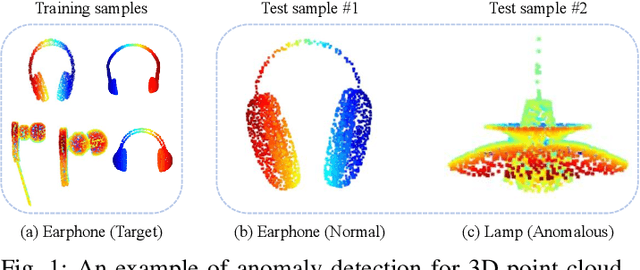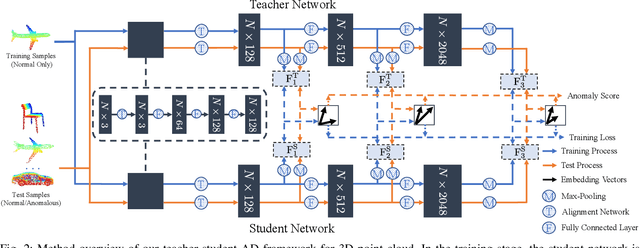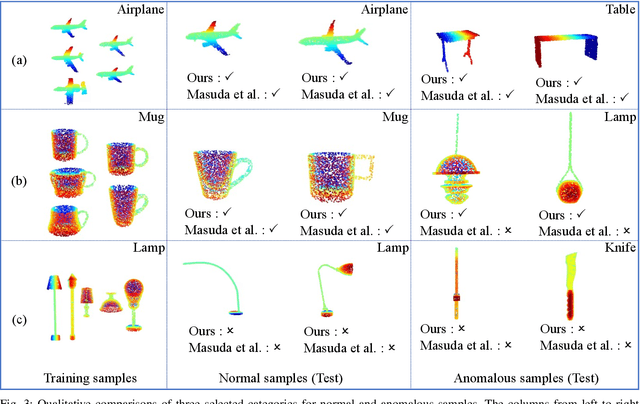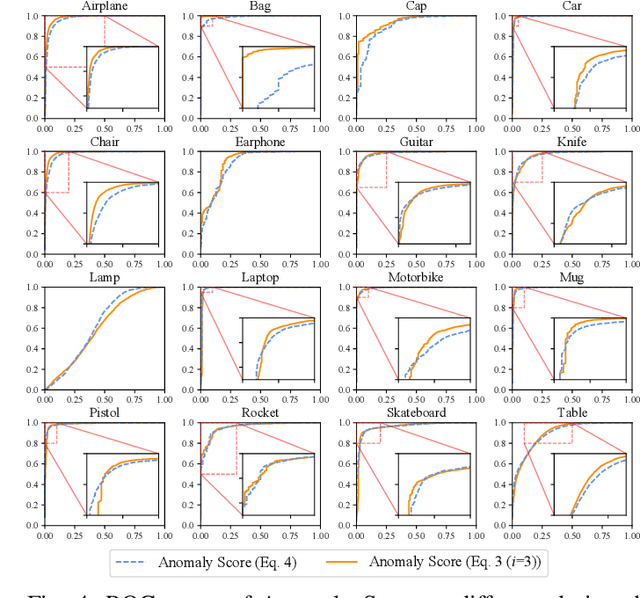Teacher-Student Network for 3D Point Cloud Anomaly Detection with Few Normal Samples
Paper and Code
Oct 31, 2022



Anomaly detection, which is a critical and popular topic in computer vision, aims to detect anomalous samples that are different from the normal (i.e., non-anomalous) ones. The current mainstream methods focus on anomaly detection for images, whereas little attention has been paid to 3D point cloud. In this paper, drawing inspiration from the knowledge transfer ability of teacher-student architecture and the impressive feature extraction capability of recent neural networks, we design a teacher-student structured model for 3D anomaly detection. Specifically, we use feature space alignment, dimension zoom, and max pooling to extract the features of the point cloud and then minimize a multi-scale loss between the feature vectors produced by the teacher and the student networks. Moreover, our method only requires very few normal samples to train the student network due to the teacher-student distillation mechanism. Once trained, the teacher-student network pair can be leveraged jointly to fulfill 3D point cloud anomaly detection based on the calculated anomaly score. For evaluation, we compare our method against the reconstruction-based method on the ShapeNet-Part dataset. The experimental results and ablation studies quantitatively and qualitatively confirm that our model can achieve higher performance compared with the state of the arts in 3D anomaly detection with very few training samples.
 Add to Chrome
Add to Chrome Add to Firefox
Add to Firefox Add to Edge
Add to Edge